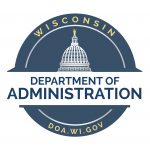Gov. Evers, AG Kaul Oppose 3M’s Proposed PFAS Settlement
Settlement would limit communities ability to sue over cleanup costs, damages.
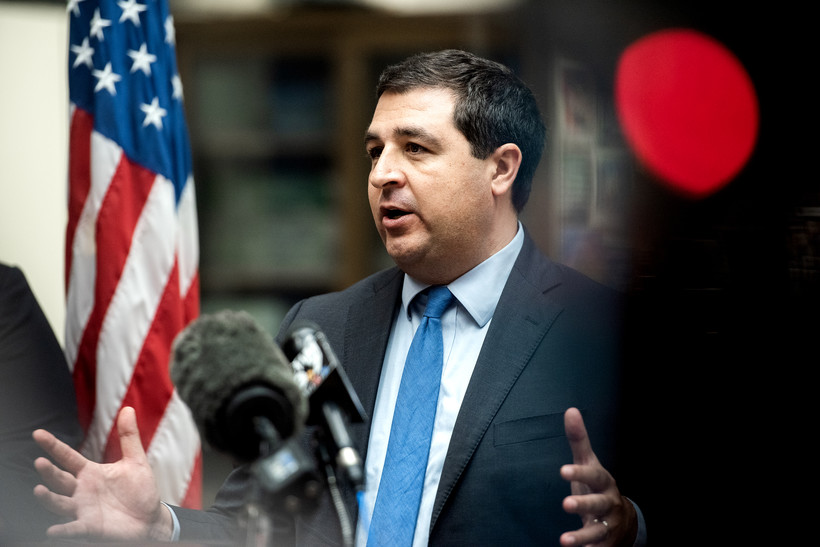
Attorney General Josh Kaul speaks Wednesday, March 1, 2023, at the Milwaukee Crime Lab in Milwaukee, Wis. Angela Major/WPR
Gov. Tony Evers and Wisconsin Attorney General Josh Kaul joined a coalition that opposes a $10.3 billion settlement proposed by Minnesota-based 3M over PFAS pollution of public water supplies.
In a statement Thursday, Gov. Tony Evers said water providers would be forced to withdraw hundreds of lawsuits filed against 3M for use of the so-called forever chemicals in firefighting foam and other products.
“Communities across our state are dealing with the effects of PFAS contamination, and we know folks and families are already facing enormous costs to get these harmful pollutants out of our water supplies,” Evers said.

Gov. Tony Evers speaks before signing the 2023-2025 biennial budget Wednesday, July 5, 2023, at the Wisconsin State Capitol in Madison, Wis. Angela Major/WPR
In a Wednesday court filing, Kaul and his counterparts said the settlement doesn’t give enough time to examine costs tied to their claims. They also said it doesn’t cover PFAS pollution beyond drinking water, such as contamination of private wells, wastewater treatment plants and landfills. They also fear the deal could shift billions of dollars of liability onto states and U.S. territories, as well as their taxpayers.
“If we let these companies off the hook now, it’s going to be taxpayers in our state and our communities who end up footing the bill for this cleanup,” Kaul told WPR. “That would be absolutely wrong, and that’s why we’re stepping in here.”
Last summer, Kaul filed a lawsuit against 18 companies, including 3M, to recover costs of investigating and cleaning up PFAS contamination. That suit alleged 3M, several Wisconsin manufacturers and others knew PFAS within their products posed significant risks to public health and the environment. Kaul said that’s a separate case from the class action suit that remains ongoing.
Chemical companies like 3M and Marinette manufacturer Tyco Fire Products are facing thousands of lawsuits related to the use of firefighting foam that contains PFAS. Around 300 communities have sued 3M and other chemical companies for pollution of their water supplies, according to the Associated Press.
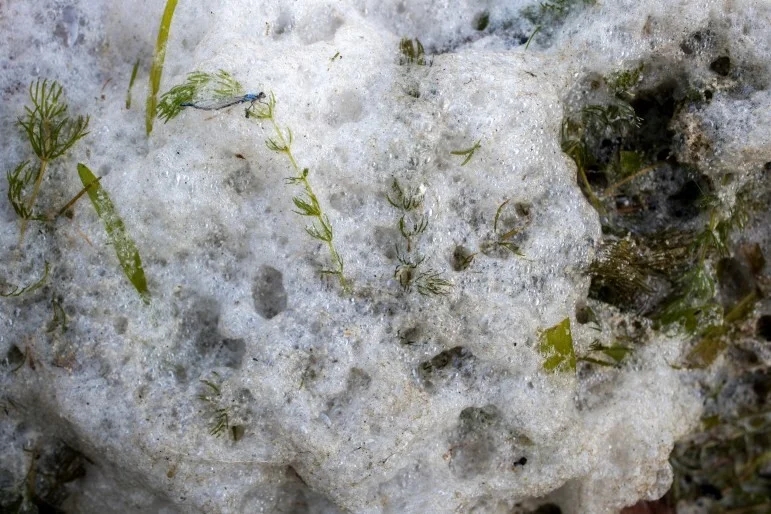
Foam is seen at Olbrich Park in Madison, Wis., where PFAS-tainted Starkweather Creek enters Lake Monona. Public Health Madison and Dane County has warned residents not to swallow the foam — or allow their pets to do so. Isaac Wasserman/Wisconsin Watch
The proposed deal would apply to almost all public water systems regardless of whether they’ve sued the company or tested for the chemicals in drinking water, according to Kaul. Individual water systems would be bound by the settlement unless they opted out. For those who don’t opt out of the deal, communities could be forced to reimburse 3M for any future PFAS costs the company incurs related to issues with the chemicals in their water supplies.
“We didn’t sign on for just this short blip,” Rosenberg said. “We’re in it for the long haul, so that we can get the best cost recovery for our ratepayers.”
In northeastern Wisconsin, the communities of Marinette and Peshtigo have been dealing with pollution of groundwater and private wells stemming from the use of PFAS foam at Tyco’s fire training facility in Marinette. Doug Oitzinger, a member of the Marinette Common Council, noted that Tyco’s parent company Johnson Controls has reserved around $250 million for remediation tied to PFAS.
“That tells you that $10 billion for the entire country is not a lot of money,” Oitzinger said.
He and other leaders of communities affected by PFAS contamination want to see 3M and other companies held fully responsible for cleaning up pollution and securing safe water, including Lee Donahue, a supervisor with the Town of Campbell.
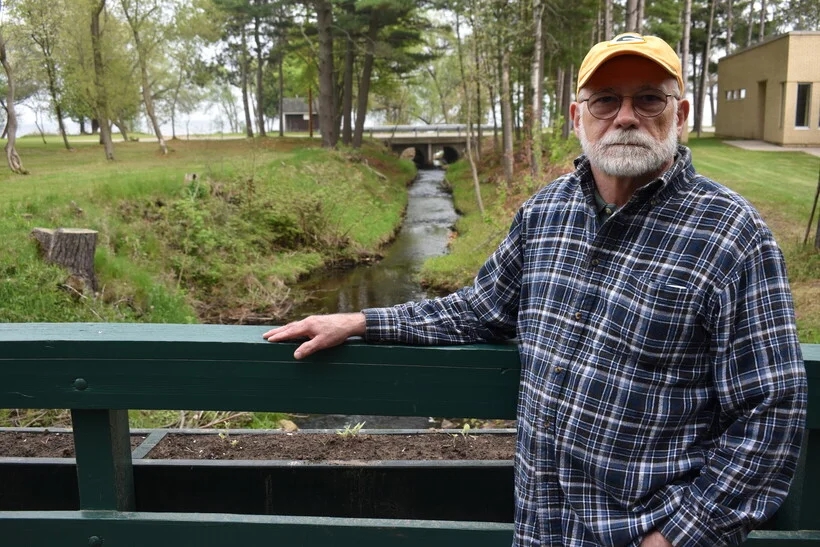
Marinette City Council member Doug Oitzinger stands over a ditch flowing into Green Bay where water samples have shown PFOS levels as high as 2,000 parts per trillion before it’s treated. Danielle Kaeding/WPR
Since 2021, the state Department of Natural Resources has been providing bottled water to more than 1,400 homes in the town on French Island due to PFAS pollution of private wells. Officials believe the contamination stems from the use of firefighting foam at the La Crosse Regional Airport on the island.
“This settlement does nothing to address the communities like Campbell, like Peshtigo — people that live on private well water,” Donahue said. “They’re not included in this settlement. And, quite frankly, the amount of the settlement is not enough to do what needs to be done.”
Oitzinger said it would take hundreds of billions of dollars over many years to address contamination, and Donahue said she would like 3M to assess what it will cost each community that’s facing PFAS pollution stemming from their products.
PFAS have been detected in private and public wells across Wisconsin, including in Wausau, La Crosse, Peshtigo and Campbell.
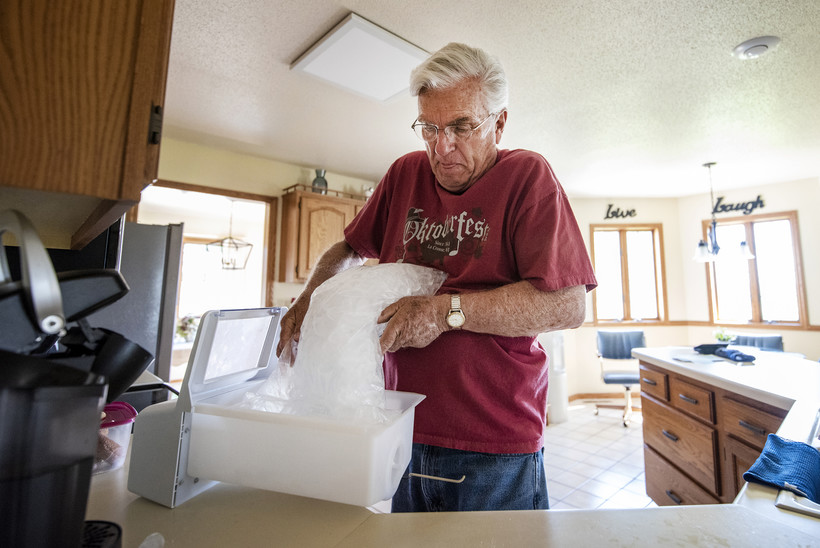
Dale Wetterling empties a bag of ice into a box before placing it in the freezer Tuesday, June 1, 2021, at his home in French Island, Wis. He and his wife, Mary, use ice from Kwik Trip due to PFAS contamination in their water. Angela Major/WPR
In Wisconsin, the DNR has now tested more than 600 water systems for PFAS, of which most are municipal water supplies. As of last summer, around 450 private wells had been tested for PFAS. The vast majority of samples taken have fallen below the state’s health hazard index for PFAS, which measures public health concern related to a mix of the chemicals in drinking water.
While Wisconsin has PFAS standards in drinking water, the state has so far failed to pass limits on the chemicals in groundwater. The DNR is currently crafting regulations for PFAS in groundwater that serves one third of state residents who rely on private wells.
Evers and lawmakers provided $125 million in funding for communities to address PFAS under the recently passed two-year state budget. A Republican-authored bill on how that money would be spent is still making its way through the legislative process, although environmental groups and residents are voicing concerns about industry-supported provisions that would weaken the DNR’s authority to address the chemicals.
Evers, Kaul join coalition to reject 3M’s proposed deal to address PFAS pollution was originally published by Wisconsin Public Radio.
More about the PFAS Problem
- PFAS Levels in Great Lakes Fish Are Dropping - Danielle Kaeding - Feb 6th, 2026
- Gov. Evers and GOP Lawmakers Near a Deal on PFAS Pollution - Danielle Kaeding - Jan 22nd, 2026
- Gov. Evers Optimistic About Reaching Final Deal With Republican Lawmakers to Secure Release of $125 Million in Long-Awaited Pfas Investments - Gov. Tony Evers - Jan 21st, 2026
- Bipartisan Push to Tell Counties Faster When Water Tests Fail - Henry Redman - Dec 19th, 2025
- MKE County: County Seeks to Sue PFAS Producers, Oil Companies - Graham Kilmer - Dec 10th, 2025
- Wisconsin Reviewing EPA-Approved Pesticides For PFAS - Danielle Kaeding - Dec 9th, 2025
- State Nears Settlement with Johnson Controls/Tyco Over PFAS Spills - Danielle Kaeding - Dec 4th, 2025
- Senate Bill Promotes Soybean-Based Firefighting Foam to Replace PFAS - Danielle Kaeding - Dec 2nd, 2025
- Test Results Show High PFAS Levels in Wisconsin’s Landfill Runoff - Danielle Kaeding - Dec 2nd, 2025
- Wisconsin Communities Get $282 Million for Drinking Water Projects - Danielle Kaeding - Nov 19th, 2025
Read more about PFAS Problem here









